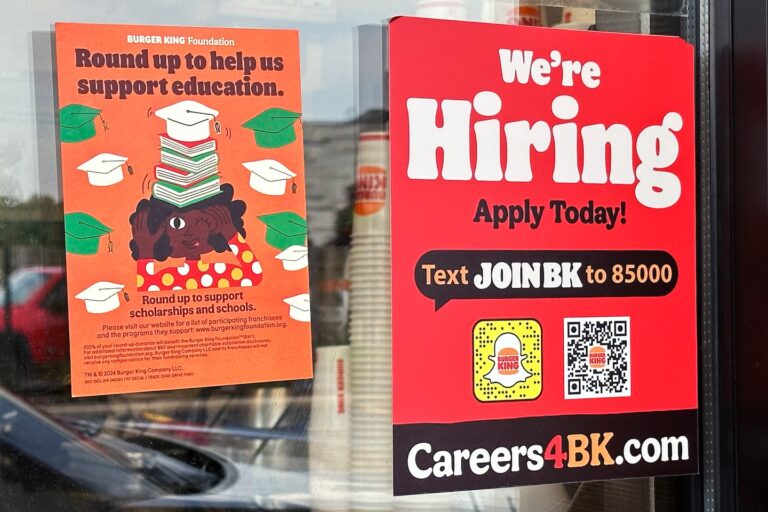The report is good news for President Biden, whose term coincided with 42 consecutive months of job growth. More than 15 million jobs have been created under Biden, averaging about 380,000 jobs per month, but the pace of job creation has recently slowed to 220,000.
The latest job gains were concentrated in health care and government, which accounted for nearly three-quarters of the jobs added in June. Construction, transportation and finance also added jobs, while retail, manufacturing and professional and business services — a catch-all category that includes many white-collar jobs — saw job losses.
“There’s widespread evidence that the economy is headed for a downturn,” said Cathy Bostjancic, chief economist at Nationwide Mutual. “We’re seeing a general slowdown in the economy, but it’s too early to tell at this point whether we’re headed for a ‘soft landing’ or a bumpier, harder landing.”
Get caught up in
Stories to keep you up to date
The June payrolls report reflected a drop in employment in May, with the Labor Department sharply revising down its May payrolls report to 218,000 from 272,000, the department said. April payrolls were also revised down to a slight increase of 108,000 from 165,000, the lowest since October.
A gradual slowdown in the labor market could raise expectations that the Federal Reserve will cut interest rates in coming months and reinforce other signs of slowing hiring, job offers and wage growth.
“The labor market remains strong, but not as strong as it was a year ago,” said Gus Faucher, chief economist at PNC. “If job growth slows a little, competition for workers cools a little and wage growth slows a little, inflation should move back toward the Fed’s 2% target.”
Inflation is at 3.3%, down significantly from a peak of 9.1% two years ago but still higher than the Fed would like, especially as wage growth, which drives price increases, is a key focus for the central bank.
Overall, wages have risen 0.3% since May and 3.9% over the past year, further easing concerns that inflation may be rising again. Federal Reserve Chairman Jerome H. Powell said this week that the labor market is “moderately cooling.”
“It doesn’t look like we’re going to see interest rates rise or cause any major problems for inflation going forward,” Powell said at the European Central Bank’s annual meeting on Tuesday. “It looks like we’re moving in exactly the direction we want, which is for interest rates to stabilize over time.”
These signs of a slowing economy are piling up. Service industry employment fell for the sixth straight month out of seven in June. And jobless claims rose again last week, marking a ninth straight month of increases, suggesting people are taking longer to find work. Indeed, the long-term unemployment rate, a measure of people who have been looking for work for six months or more, rose in June to its highest level in more than two years.
Marcelino Bautista applied to more than 100 jobs before finally finding work last month as a systems programmer at a grocery store in Hilo, Hawaii. Mr. Bautista, 31, graduated from college in May after serving six years in the Marines.
“The job search was a lot more stressful than I expected,” he says. “I applied to everything, including internships, and it was very competitive.”

